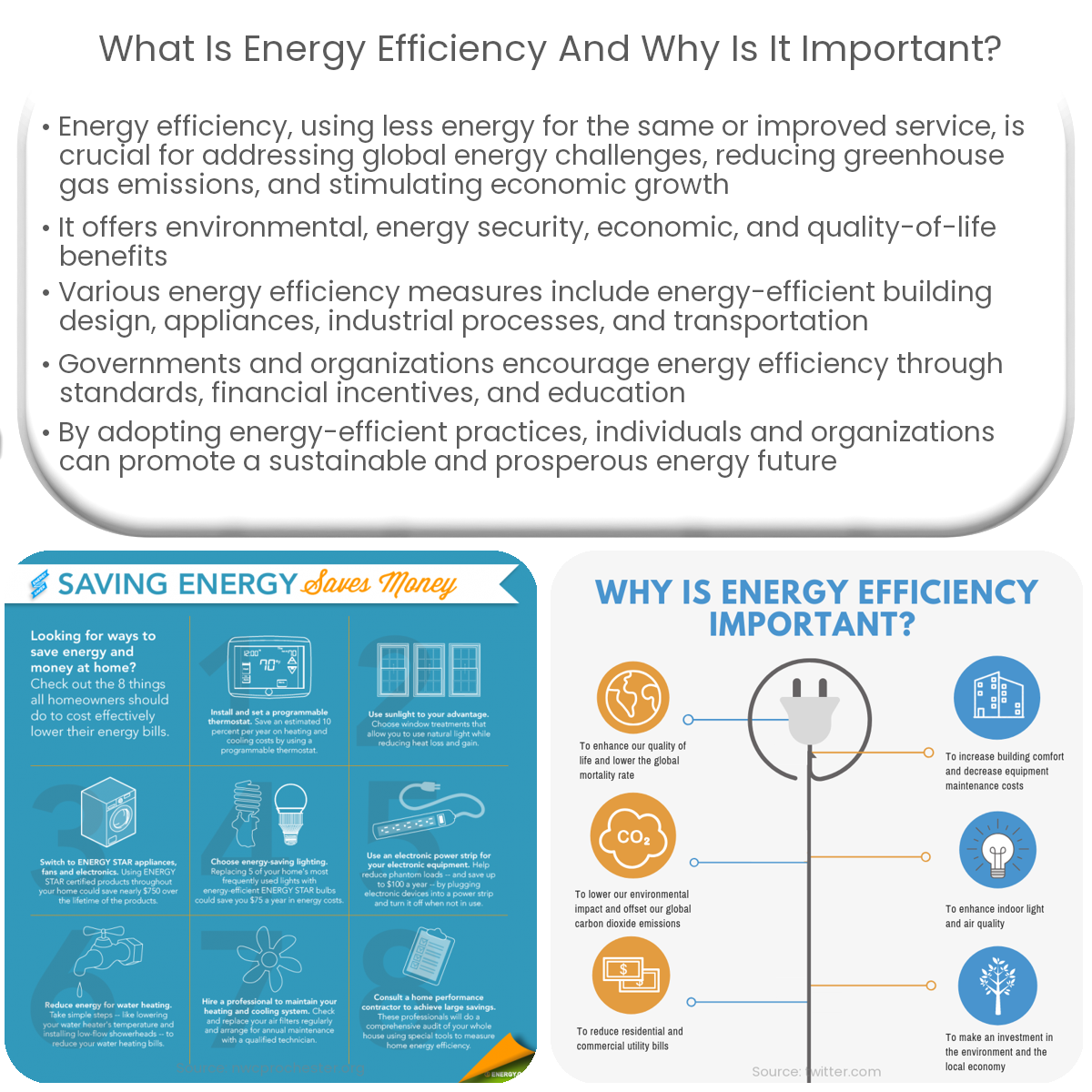Energy efficiency means using less energy for the same service, reducing emissions, ensuring energy security, and promoting economic growth.
Introduction to Energy Efficiency
Energy efficiency refers to the practice of using less energy to provide the same or improved level of service, comfort, and functionality. By optimizing energy use, energy efficiency contributes to a sustainable and cost-effective energy future. This article explores the concept of energy efficiency and its importance in today’s world.
Why is Energy Efficiency Important?
Energy efficiency plays a critical role in addressing global energy challenges, including reducing greenhouse gas emissions, ensuring energy security, and promoting economic growth. The key benefits of energy efficiency include:
- Environmental benefits: By reducing energy consumption, energy efficiency lowers the demand for energy generation, resulting in decreased greenhouse gas emissions and reduced environmental impact.
- Energy security: Improved energy efficiency can help decrease reliance on imported energy resources, enhancing a country’s energy independence and resilience.
- Economic benefits: Energy-efficient technologies and practices can lead to cost savings for consumers and businesses, fostering economic growth and job creation.
- Improved quality of life: Energy-efficient solutions can enhance comfort and convenience, leading to improved living and working conditions.
Energy Efficiency Measures
Various energy efficiency measures can be implemented in different sectors, including residential, commercial, industrial, and transportation. Some common energy efficiency measures include:
- Building design: Energy-efficient building design incorporates insulation, natural lighting, passive solar heating, and energy-efficient windows to minimize energy consumption.
- Appliances and equipment: Energy-efficient appliances and equipment, such as LED lighting and ENERGY STAR-rated products, consume less energy while providing the same level of performance.
- Industrial processes: Adopting energy-efficient technologies and practices in industrial processes can lead to significant energy savings and reduced operational costs.
- Transportation: Fuel-efficient vehicles, public transportation, and carpooling can help reduce energy consumption in the transportation sector.
Policy and Incentives for Energy Efficiency
Governments and organizations worldwide promote energy efficiency through various policies and incentives, such as:
- Energy efficiency standards: Minimum energy performance standards for appliances, equipment, and buildings help drive market adoption of energy-efficient technologies.
- Financial incentives: Tax credits, rebates, and low-interest loans encourage investments in energy-efficient technologies and practices.
- Education and awareness: Public awareness campaigns and educational programs inform consumers and businesses about the benefits of energy efficiency and available solutions.
Conclusion
Energy efficiency is essential in addressing global energy challenges, promoting environmental sustainability, and fostering economic growth. By adopting energy-efficient technologies and practices, individuals and organizations can contribute to a cleaner, more secure, and prosperous energy future.


